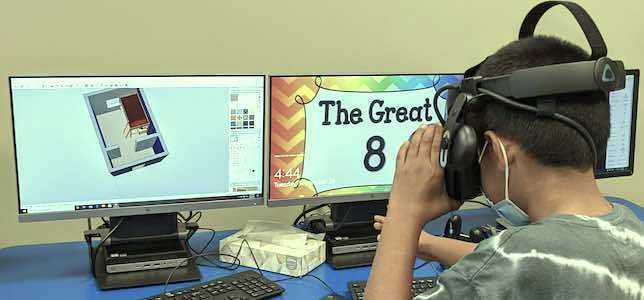
Through a $1.5million, four-year NSF grant, Oklahoma State University researchers are leveraging their earlier work with proven, college-level design courses that incorporate VR, AR, and 3D printing technologies. But this time, they are helping underserved Native American middle school students develop STEM skills.
One aspect of completion rates at community colleges that doesn't get much attention is the professional development of the instructors. A recent research project suggested that better support for faculty could eventually make a difference in student outcomes, even though the students who were part of the study did no better in the courses than their peers who weren't part of the project.
IBM is setting out to provide 30 million people all over the world with job skills in technology fields by 2030.
A new development project in the eastern section of New Orleans aims to expand science, technology, engineering and math (STEM) education for children and adults from under-resourced communities.

Keysight Technologies has introduced PathWave Lab Operation for Remote Learning, a remote access solution designed for online learning that enables the remote setup of instrument labs.
A $3 million grant from the National Science Foundation will enable minority-serving institutions to bolster their cyberinfrastructure and open up STEM professional development opportunities.
California's San Jose City College (SJCC) has teamed up with the Hispanic IT Executive Council (HITEC) to address the challenges Hispanic students have in staying with and graduating from college and forging good careers in the technology segment.

James Madison University's JMU X-Labs goes beyond making, encouraging students to tackle transdisciplinary challenges through collaboration, creativity and technology.
A California University has just received a $2.4 million grant to draw Black and African American girls into robotics and engineering. The funding from the National Science Foundation will enable the University of California Davis to do outreach through its Center for Integrated Computing and STEM Education (C-STEM).
With the goal of boosting engineering research in the United States, Oakland University, Georgia Institute of Technology and the University of Tennessee-Knoxville have joined forces to build a collaborative research center focused on composite and hybrid materials interfacing.